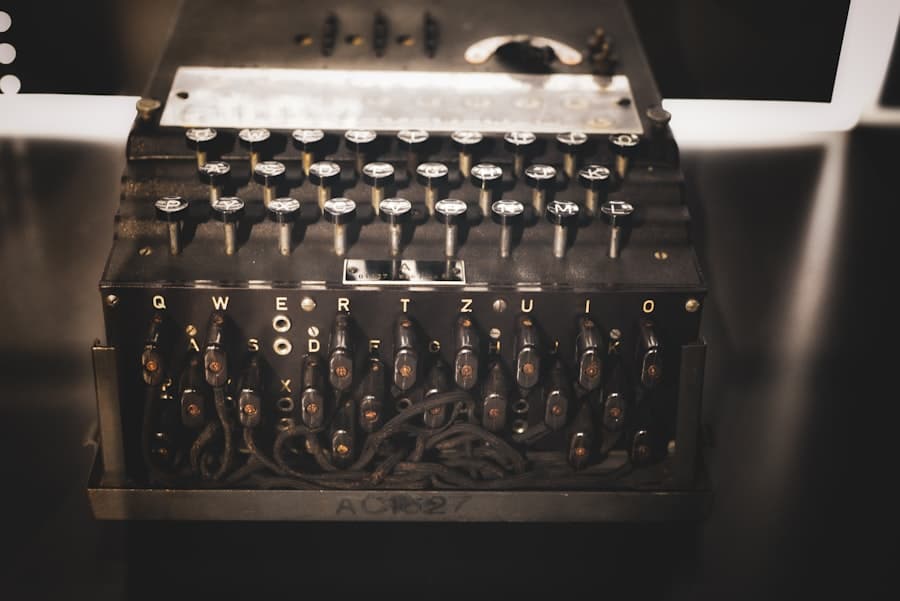Zero-Knowledge Proofs (ZKPs) represent a fascinating concept in the realm of cryptography, allowing one party, known as the prover, to demonstrate to another party, the verifier, that a statement is true without revealing any additional information about the statement itself. This intriguing property of ZKPs is what makes them particularly valuable in various applications, especially in scenarios where privacy and security are paramount. The foundational idea was first introduced by Shafi Goldwasser, Silvio Micali, and Charles Rackoff in the 1980s, and it has since evolved into a critical component of modern cryptographic protocols.
At its core, a zero-knowledge proof must satisfy three essential properties: completeness, soundness, and zero-knowledge. Completeness ensures that if the statement is true, an honest prover can convince an honest verifier of its truth. Soundness guarantees that if the statement is false, no cheating prover can convince the verifier of its truth with any significant probability.
Finally, the zero-knowledge property ensures that the verifier learns nothing beyond the validity of the statement itself. This unique combination of properties allows ZKPs to be utilized in various scenarios where sensitive information must be protected while still providing proof of authenticity.
Key Takeaways
- Zero-Knowledge Proofs allow one party to prove to another that a statement is true without revealing any information about the statement itself.
- In cryptography, Zero-Knowledge Proofs are used to verify the authenticity of a user without revealing their private information, enhancing security and privacy.
- Zero-Knowledge Proofs can be used to enhance user privacy by allowing individuals to prove their identity or ownership of certain information without disclosing unnecessary details.
- Zero-Knowledge Proofs have applications in technology such as authentication, digital signatures, and secure communication, providing a layer of privacy and security.
- While Zero-Knowledge Proofs offer enhanced privacy and security, they also have limitations such as complexity of implementation and potential for misuse in certain scenarios.
Zero-Knowledge Proofs in Cryptography
In the field of cryptography, zero-knowledge proofs serve as a powerful tool for enhancing security protocols. They enable secure authentication processes without the need to transmit sensitive information such as passwords or private keys. For instance, consider a scenario where a user wants to prove their identity to a service provider without revealing their password.
By employing a zero-knowledge proof protocol, the user can demonstrate knowledge of their password without ever sending it over the network. This significantly reduces the risk of password theft and enhances overall security. Moreover, ZKPs can be integrated into various cryptographic protocols to bolster their security features.
For example, they can be used in secure multi-party computation (MPC) scenarios where multiple parties need to jointly compute a function while keeping their inputs private. By utilizing zero-knowledge proofs, each party can prove that they have followed the protocol correctly without disclosing their private data. This capability is particularly useful in applications such as secure auctions or collaborative data analysis, where trust among participants is crucial.
Enhancing User Privacy with Zero-Knowledge Proofs

User privacy is an increasingly pressing concern in today’s digital landscape, where personal data is often collected and exploited by various entities. Zero-knowledge proofs offer a robust solution to enhance user privacy by allowing individuals to prove certain attributes about themselves without revealing the underlying data. For instance, consider a scenario where a user wants to prove their age to access age-restricted content online.
Instead of providing their full date of birth, which could lead to identity theft or unwanted profiling, they can use a zero-knowledge proof to confirm that they are over a certain age without disclosing any additional information. This capability extends beyond simple age verification; it can also be applied in various contexts such as credit scoring or identity verification. For example, a user could prove that they have a sufficient credit score to qualify for a loan without revealing their actual credit score or financial history.
By leveraging zero-knowledge proofs, organizations can implement privacy-preserving mechanisms that protect user data while still allowing for necessary verifications.
Applications of Zero-Knowledge Proofs in Technology
The applications of zero-knowledge proofs span a wide array of technological domains, from secure communications to blockchain technology. In secure communications, ZKPs can be employed to facilitate secure messaging systems where users can verify each other’s identities without exposing sensitive information. This is particularly relevant in environments where trust is limited or where users may be concerned about surveillance and data breaches.
In the realm of blockchain technology, zero-knowledge proofs have gained significant traction due to their ability to enhance transaction privacy and scalability. For instance, cryptocurrencies like Zcash utilize zk-SNARKs (Zero-Knowledge Succinct Non-Interactive Arguments of Knowledge) to enable private transactions on their network. Users can send and receive funds without revealing transaction details such as sender and receiver addresses or transaction amounts.
This not only protects user privacy but also helps maintain the integrity of the blockchain by ensuring that all transactions are valid without exposing sensitive information.
Advantages and Limitations of Zero-Knowledge Proofs
The advantages of zero-knowledge proofs are manifold, particularly in terms of enhancing security and privacy. One of the most significant benefits is that they allow for verification without disclosure, which is crucial in many applications where sensitive information must remain confidential. Additionally, ZKPs can help reduce the attack surface for potential adversaries since they do not have access to the underlying data being verified.
One notable challenge is the computational complexity associated with generating and verifying these proofs. Depending on the specific implementation and use case, ZKPs can require significant computational resources, which may hinder their practicality in certain scenarios.
Furthermore, while ZKPs provide strong privacy guarantees, they do not inherently protect against all forms of attacks; for instance, if an adversary can manipulate the context in which a proof is generated or verified, they may still find ways to compromise security.
Zero-Knowledge Proofs in Blockchain Technology

In blockchain technology, zero-knowledge proofs have emerged as a transformative force that addresses some of the inherent limitations of traditional blockchain systems. Public blockchains typically expose transaction details to all participants, which can lead to privacy concerns for users who wish to keep their financial activities confidential. By integrating zero-knowledge proofs into blockchain protocols, developers can create systems that allow for private transactions while still maintaining the transparency and immutability that blockchains are known for.
Zcash is one of the most prominent examples of a cryptocurrency that employs zero-knowledge proofs through zk-SNARKs. In Zcash transactions, users can choose between transparent and shielded transactions. Shielded transactions utilize zk-SNARKs to ensure that transaction details remain private while still being verifiable by network participants.
This innovative approach allows users to enjoy the benefits of cryptocurrency—such as decentralization and security—without sacrificing their privacy. Another noteworthy application of zero-knowledge proofs in blockchain technology is in decentralized identity solutions. Projects like Sovrin and uPort leverage ZKPs to enable users to manage their digital identities securely and privately.
By allowing users to prove specific attributes about themselves—such as age or citizenship—without revealing their entire identity, these solutions empower individuals with greater control over their personal data while facilitating trust in digital interactions.
Future Implications of Zero-Knowledge Proofs for User Privacy
As concerns about data privacy continue to grow in an increasingly interconnected world, zero-knowledge proofs are poised to play a pivotal role in shaping future privacy-preserving technologies. The ability to verify information without disclosing sensitive data aligns perfectly with emerging trends toward greater user autonomy and control over personal information. As regulatory frameworks like the General Data Protection Regulation (GDPR) emphasize the importance of data protection and user consent, ZKPs offer a viable solution for organizations seeking compliance while still enabling necessary verifications.
Moreover, as more industries recognize the value of user privacy—ranging from finance to healthcare—zero-knowledge proofs could become standard practice for secure transactions and identity verification processes. The potential for ZKPs to facilitate secure voting systems also presents an exciting avenue for exploration; by allowing voters to prove their eligibility without revealing their identities or choices, ZKPs could enhance electoral integrity while preserving voter anonymity.
Implementing Zero-Knowledge Proofs for Enhanced Security
Implementing zero-knowledge proofs effectively requires careful consideration of various factors including computational efficiency, usability, and integration with existing systems. Organizations looking to adopt ZKPs must evaluate their specific use cases and determine how best to leverage this technology within their security frameworks. For instance, when integrating ZKPs into authentication processes, organizations should ensure that the user experience remains seamless while still providing robust security measures.
Additionally, developers must stay informed about advancements in zero-knowledge proof research and technology. As new algorithms and optimizations emerge, they may offer improved performance or enhanced security features that could benefit existing implementations. Collaboration between academia and industry will be crucial in driving innovation in this space and ensuring that zero-knowledge proofs continue to evolve alongside emerging threats and challenges.
In conclusion, zero-knowledge proofs represent a groundbreaking advancement in cryptography with far-reaching implications for user privacy and security across various domains. Their unique ability to provide verification without disclosure positions them as a vital tool for addressing contemporary challenges related to data protection and trust in digital interactions. As technology continues to advance and user expectations evolve, zero-knowledge proofs will likely play an increasingly central role in shaping secure and privacy-preserving systems for the future.
In a related article from Wired.com, the focus is on how emerging technologies are shaping the future of privacy and security.
It highlights the importance of staying informed about the latest advancements in technology to protect personal data and maintain privacy in the digital age.
FAQs
What are zero-knowledge proofs?
Zero-knowledge proofs are cryptographic protocols that allow one party to prove to another party that a statement is true, without revealing any information beyond the validity of the statement itself.
How do zero-knowledge proofs enhance user privacy?
Zero-knowledge proofs enhance user privacy by allowing individuals to prove the validity of certain information without revealing the actual information itself. This means that users can authenticate themselves or prove ownership of certain data without disclosing sensitive details.
What are some real-world applications of zero-knowledge proofs?
Zero-knowledge proofs are being used in various applications such as blockchain technology, authentication systems, digital identity verification, and secure data sharing. They are also being explored for potential use in voting systems and confidential transactions.
Are zero-knowledge proofs secure?
Zero-knowledge proofs are designed to be secure and have been extensively studied by cryptographers. When implemented correctly, zero-knowledge proofs provide a high level of security and privacy for users.
Can zero-knowledge proofs be used for illegal activities?
While zero-knowledge proofs can enhance privacy and security, they can also be misused for illegal activities. However, the technology itself is not inherently illegal and can be used for legitimate purposes to protect user privacy and data security.

